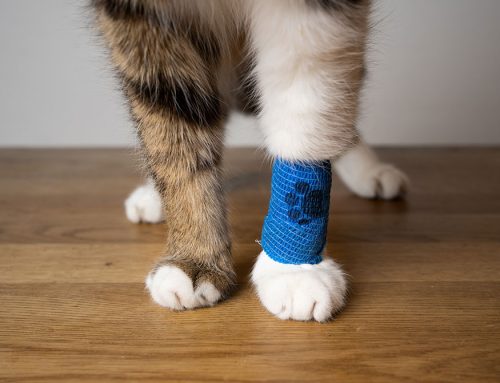In many ways, pet’s teeth are very similar to human teeth. It is not surprising that their teeth need periodic cleaning, just like humans.
HOW DO I KNOW IF MY DOG NEEDS A DENTAL SCALING?
As tartar and plaque buildup on your pet’s teeth, you will notice hard brown material adhered to the teeth, especially at the gum line. This debris also builds up under the gum line. Without periodic scaling, the gums become irritated and reddened, and will begin to recede. Infection is then inevitable. You may also notice that your pet has some loose teeth or prefers canned food over dry food. Needless to say, dental disease can make eating very painful – ask anyone who has ever had a cavity.
WHY SHOULD I BE CONCERNED ABOUT MY PET=S TEETH?
Besides the obvious discomfort of dental disease, there are several reasons to be concerned about your pet’s teeth. As plaque and tartar accumulate under the gums, bacteria become trapped. This environment is excellent for bacterial growth, making the mouth a constant source of infection. These bacteria can get into the blood stream and go to any organ including the heart, liver, kidneys, and lungs. Bad teeth may not kill a pet but an infection in a major organ can. The bacteria can also travel up the tooth into the sinuses creating a large painful abscess. Lastly, tartar, plaque, and bacteria all lead to bad breath! If you’ve noticed an especially bad odor from your pet’s mouth, it’s probably time to make an appointment for a dental scaling.
MY PET EATS DRY FOOD SO THERE WON=T BE DENTAL PROBLEMS, RIGHT?
Wrong! Although feeding hard, dry food does tend to slow the process of tartar accumulation, it does not eliminate the problem.
WHAT CAN I DO AT HOME TO KEEP MY PET=S TEETH HEALTHY?
Regular brushing will decrease the rate of tartar accumulation. It is best to start when the animal is very young or after a dental scaling is done. We recommend using dental products made for dogs and cats. Human toothpastes foam a lot making brushing an unpleasant experience for most pets. Teeth should be brushed at least every day.
ANY QUESTIONS?
Please feel free to ask our staff about dental care for your pet. Remember, it is always easier to prevent dental problems through regular check-ups and cleanings than treat them once a problem has occurred!








Leave A Comment